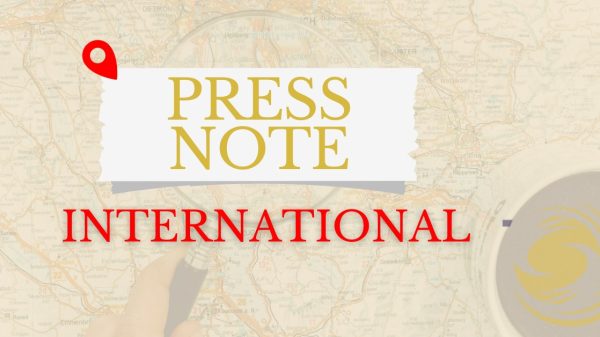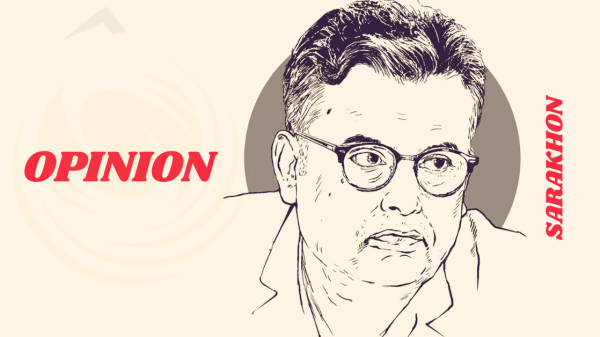U.S.-China Tariff Dispute Sparks $115 Billion Market Decline

- Update Time : Sunday, April 6, 2025

Global Markets Plunge Amid U.S. Tariff Escalations
News.com.au,
In response to U.S. President Donald Trump’s aggressive tariff policies, global markets have experienced significant downturns, with an estimated $8 trillion in losses. The administration faces mounting opposition both domestically and internationally. Protests have erupted across the U.S. and Europe, criticizing the administration’s approach to trade and immigration. Trump defended his policies on social media, asserting that the U.S. is faring better than other nations and promising an “economic revolution.” However, key economic indicators, including a 60% recession risk cited by JPMorgan Chase, have heightened concerns. The United Kingdom, led by Prime Minister Keir Starmer, is preparing economic interventions to counteract U.S. tariffs and has held emergency talks with Australian Prime Minister Anthony Albanese. Notably, Jaguar Land Rover has suspended U.S. exports. China has retaliated with a 34% tariff on U.S. goods and import bans. Among the implications is a potential rise in consumer prices, including fast-food staples like McDonald’s cheeseburgers, due to a 10% U.S. tariff on Australian beef. Despite the turmoil, Trump asserts his strategy will usher in domestic job growth and economic prosperity.
U.S.-China Tariff Dispute Sparks $115 Billion Market Decline
The Australian,
A severe market downturn looms following a tit-for-tat tariff escalation between the U.S. and China, triggered by President Trump’s announcement of a 54% tariff on Chinese imports. In retaliation, China imposed a 34% tariff on U.S. goods, sparking massive sell-offs in global equity markets. The Australian dollar briefly dipped below US60c, and the ASX 200 is projected to fall 4.3% on Monday, wiping out $114 billion and pushing the index 14.2% below its yearly high. Wall Street faced sharp losses, with the Dow Jones, Nasdaq, and S&P 500 all seeing declines of over 9%. Global brands like Tesla, Apple, and Amazon were particularly impacted. Analysts now expect interest rate cuts, and economic uncertainty has intensified fears of a recession. Asset managers caution that markets need time to digest and recalibrate amid growing volatility. While some experts speculate the U.S. tariff strategy may be a negotiation tactic, others warn of a shift toward de-globalization with long-term economic consequences. The rhetoric from the Trump administration suggests no near-term reversal, fueling widespread investor anxiety and deteriorating global business confidence.
North Korea Hosts First Pyongyang International Marathon in Six Years
Reuters,
North Korea hosted its first Pyongyang International Marathon in six years on April 6, 2025, marking a cautious reopening after years of pandemic-induced isolation. The event attracted around 200 foreign participants from countries including China and Romania. These athletes arrived in Pyongyang in the days leading up to the race and prepared at a local hotel. The marathon, supported by Beijing-based Koryo Tours—an official partner for the event—included a return course that ran past central Pyongyang landmarks, extended into the countryside, and concluded at a stadium reportedly filled with 50,000 spectators. North Korea had closed its borders in 2020 due to COVID-19 and began lifting restrictions gradually since 2023, although Pyongyang remains largely shut to regular tourism. The marathon was part of celebrations for the April 15 birthday of Kim Il Sung, the country’s founder. State media covered the event, and photos shared online showed a masked crowd and foreign runners capturing the festive atmosphere. The winner of the race had not yet been announced by local media at the time of reporting.
Global Backlash Intensifies Over U.S. Tariff Measures
The Guardian,
In the wake of sweeping new tariffs imposed by U.S. President Donald Trump, UK ministers have declared the end of the era of globalization. The tariffs include a 10% universal import tax, with additional “reciprocal” tariffs on countries accused of imposing higher tariffs on U.S. goods. Some of the harshest levies target Asian nations, with Cambodia, Laos, and Vietnam facing rates as high as 49%. The EU faces 20% tariffs, while the UK sees a 10% levy. Global markets have reacted negatively, with nearly $5 trillion wiped off their value. Countries have responded diversely: China has retaliated with significant tariffs, Canada and Brazil are considering countermeasures, and Indonesia is pursuing diplomacy. Taiwan and the UK have opted against immediate retaliation, instead seeking negotiation. Car manufacturers like Jaguar Land Rover and Stellantis are pausing operations in response to increased costs. UK officials argue the Brexit arrangement resulted in lower tariffs compared to the EU, and Prime Minister Keir Starmer emphasized adapting to a new, less rule-based global order. Ministers continue diplomatic efforts to mitigate trade impacts, and the EU is expected to introduce countermeasures on $28 billion worth of U.S. goods.
Nationwide Protests Erupt in U.S. Against Trump Administration Policies
Reuters,
On April 5, 2025, widespread protests erupted across the United States and abroad in opposition to President Donald Trump and his ally Elon Musk. Approximately 1,200 demonstrations were held nationwide, including a large rally in Washington, D.C., where organizers expected over 20,000 attendees. Protesters criticized a range of Trump policies, including recent tariffs, immigration stances, education reforms, and extensive federal workforce reductions initiated by Musk’s Department of Government Efficiency (DOGE). The IRS, for instance, laid off 25% of its workforce. One major concern was the potential impact on Social Security and Medicare, though the White House denied plans to cut these programs. Demonstrations featured diverse participants and messages, including support for Ukraine and Palestine.v










Leave a Reply